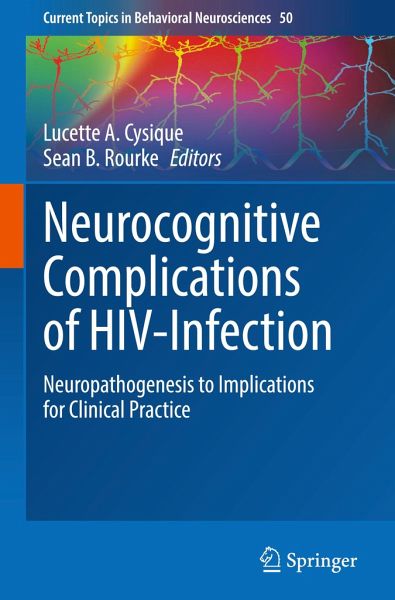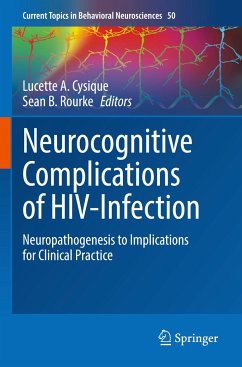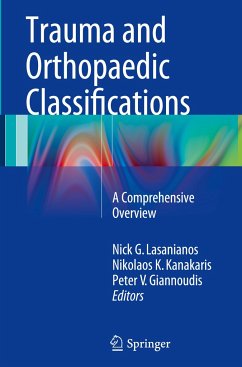
Neurocognitive Complications of HIV-Infection
Neuropathogenesis to Implications for Clinical Practice
Herausgegeben: Cysique, Lucette A.; Rourke, Sean B.

PAYBACK Punkte
76 °P sammeln!
This volume aims at presenting the latest international research and discoveries in the neurocognitive aspects and complications in HIV/AIDS, and how this understanding can shape and inform how we think about clinical practice and patient care in HIV/AIDS as well as lead to a better understanding of the underlying neuropathogenesis.
The chapter, "Metabolic Syndrome and Cardiovascular Disease Impacts on the Pathophysiology and Phenotype of HIV-Associated Neurocognitive Disorders", of this book is available open access under a CC BY 4.0 license at link.springer.com
The chapter, "Metabolic Syndrome and Cardiovascular Disease Impacts on the Pathophysiology and Phenotype of HIV-Associated Neurocognitive Disorders", of this book is available open access under a CC BY 4.0 license at link.springer.com












